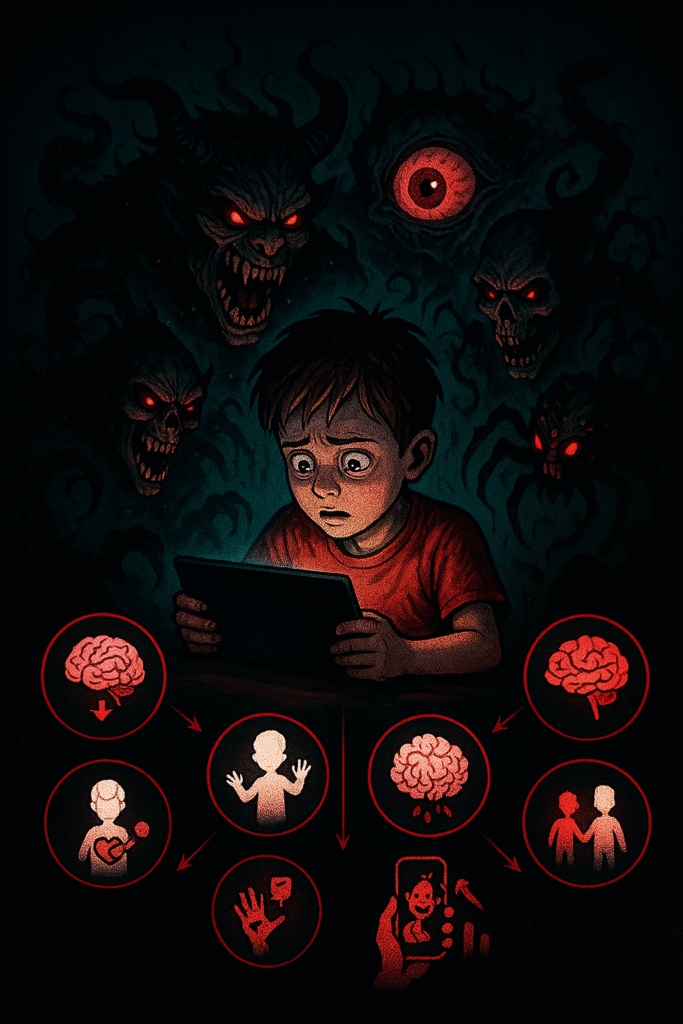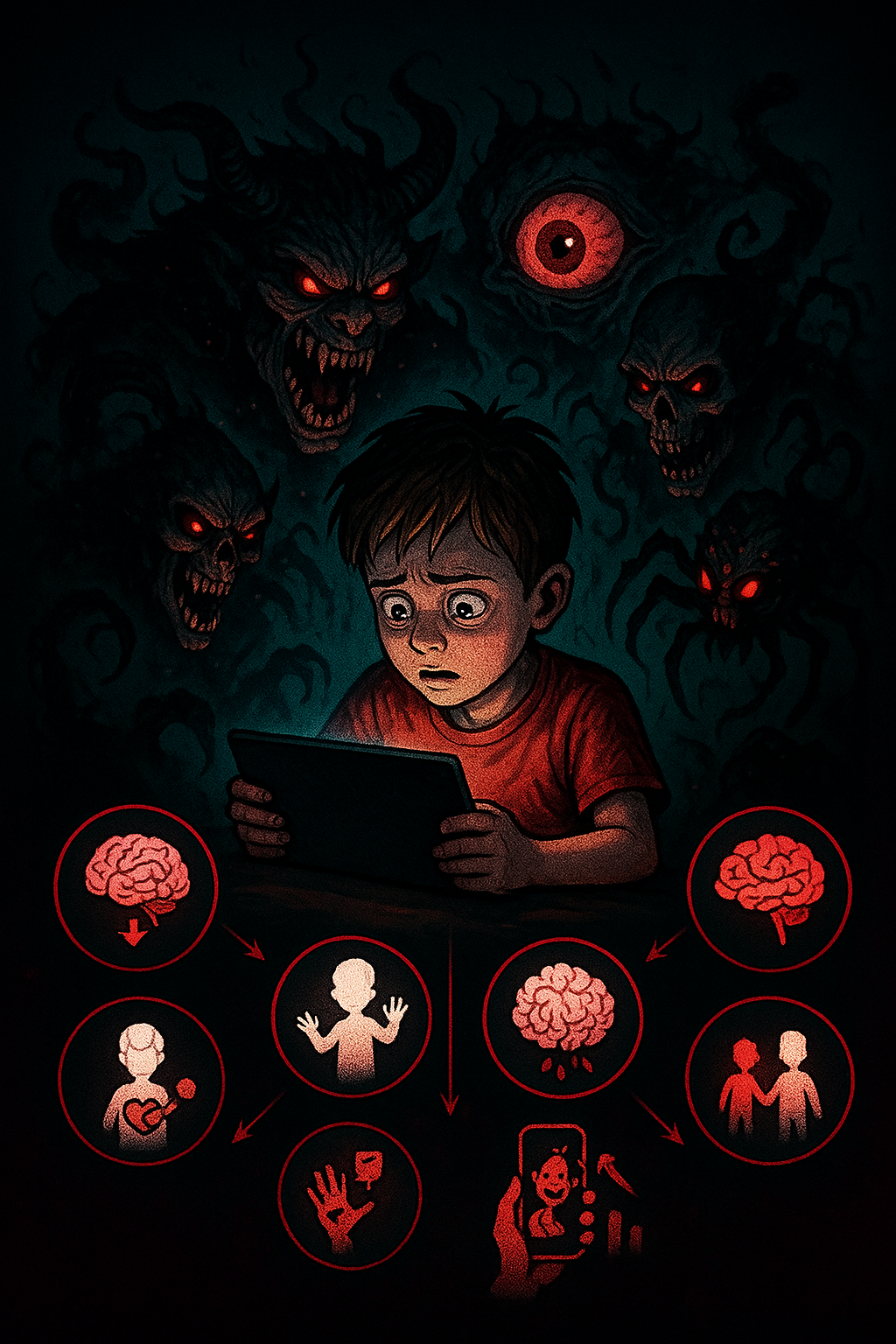By Mool Raj
In today’s fast-paced world, parenting has become a juggling act. Deadlines, household responsibilities, and the constant buzz of modern life leave many parents searching for quick fixes. One of the most common—and dangerous—shortcuts has quietly crept into our homes: handing a phone to a child as a digital pacifier.
What begins as a convenient way to stop tears or tantrums can soon evolve into something far more harmful. Many parents even buy their children separate phones, assuming it will keep them entertained and occupied. But here lies the question: are we giving them harmless amusement, or exposing them to a universe they are neither ready to understand nor equipped to navigate?
The hard truth is that while parents often believe they are protecting their child’s privacy, what they are really offering is unmonitored freedom—freedom that can easily tip into neglect. And in an era where the internet has no boundaries, this neglect comes with heavy consequences.
A Childhood Overshadowed by Screens
The modern household is often divided not by walls, but by screens. Parents immersed in work emails, news feeds, or social media sit just a few feet away from children who are equally absorbed in their digital worlds. Physical presence no longer guarantees emotional presence. Children may be sitting quietly in their rooms, but silence does not always mean safety.
Increasingly, young children are stumbling into worlds they do not understand: explicit content, dangerous online challenges, conversations with strangers, and a distorted idea of what relationships or social behavior should look like. With no adult guidance, they take everything at face value, copying behaviors they cannot process emotionally or mentally.
The changes start subtly. A child becomes more irritable, impatient, withdrawn, or secretive. These signals are easy to dismiss as mood swings, but often they are red flags pointing toward deeper struggles. Parents who fail to notice these shifts risk waking up too late, when habits and behaviors have already taken root.
The Misunderstood Notion of “Privacy”
Much of this stems from how modern parenting has begun confusing privacy with freedom. Yes, children need space to grow, but there is a thin line between independence and isolation. Handing a child a smartphone and leaving them alone under the guise of “privacy” does not nurture maturity—it leaves them vulnerable.
The danger is not hypothetical. Real stories from everyday households are proof.

A 10-year-old boy, for instance, was spending hours locked in his room after school. His mother assumed he was resting. In reality, he was watching explicit videos shared by classmates, a practice that had already become normalized among his peers. They did not understand what they were consuming, but it was already shaping their ideas of intimacy, relationships, and identity.
In another case, a 12-year-old girl, supposedly just watching reels and chatting with school friends, was in fact forming secret online connections with strangers. Slowly, she began lying, hiding things, and imitating risky behaviors to fit in with her new “friends.” She even started smoking, reasoning with her parents that if her father did it, why couldn’t she? What she lacked was not rules, but presence—someone to guide her before she stumbled too far.
These stories are not rare aberrations. They are warnings of a larger crisis unfolding in plain sight.
Where the Real Problem Lies
The issue does not begin with children. It begins with adults. Children imitate what they see—parents glued to screens, seeking distraction instead of connection, valuing gadgets over conversations. If children are left unmonitored, it is often because their parents are equally distracted or overwhelmed.
Parenting has never been just about putting food on the table, paying school fees, or buying expensive gadgets. It is about time, attention, and emotional availability. It is about asking difficult questions and setting uncomfortable boundaries, even if that means hearing your child protest or sulk. Monitoring what a child does online is not spying—it is parenting.
Choosing Presence Over Convenience
Behind every glowing screen could be hidden dangers, and behind every closed door could be silent suffering. Children rarely say it aloud, but their behavior speaks volumes about what they truly lack: attention, understanding, and guidance.
If we wait until the warning signs explode into full-blown crises, the damage may already be irreversible. The answer does not lie in banning technology altogether, but in balancing it with involvement. Replacing hours of passive scrolling with genuine conversations, creating space for play, family meals, or simply listening—these are not luxuries, they are necessities.
In the end, children do not need the latest phone or unlimited privacy. They need parents who notice, who ask, who care enough to guide them even when it feels inconvenient. Freedom without boundaries is not protection—it is neglect in disguise.
Let us not realize too late what we could have prevented early. Childhood is too fragile, and too fleeting, to be surrendered to a screen.
The views expressed in this article are solely those of the author and do not necessarily reflect the opinions or views of this newspaper
